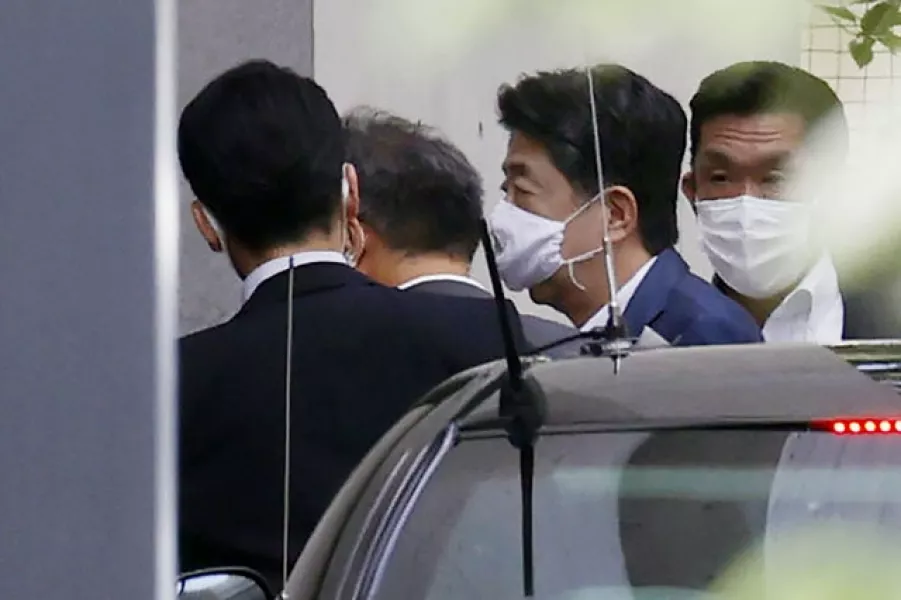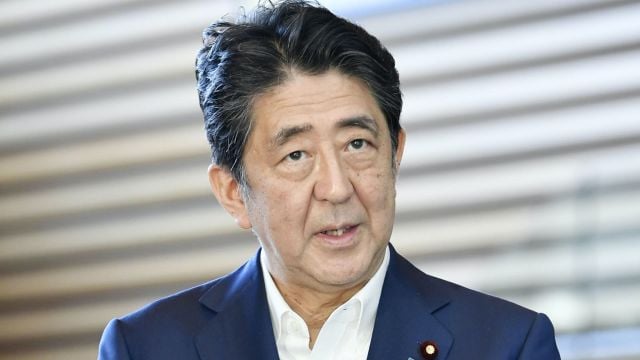Mr Abe marked his 2,799th consecutive day in office since returning to leadership in late 2012 for a second term, surpassing the previous record set by Eisaku Sato, his great-uncle, who served 2,798 straight days from 1964 to 1972.
Mr Abe, who turns 66 next month, became Japan’s longest-serving prime minister last November, combining his earlier one-year term.
His first term ended abruptly 13 years ago because of health problems, fuelling concerns about his current condition.
The prime minister made a hospital visit for the second week in a row on Monday.

Mr Abe later told reporters that he revisited the hospital “to get detailed results from last week’s checkup and have additional examination”.
“I’m making sure I’m in good health, and I plan to keep working hard,” Mr Abe said, adding that he will explain his health later.
The previous Monday, he spent more than seven hours at Keio University Hospital in Tokyo for what officials said was an additional check-up because he did not have enough time during his earlier visit in June.
Last week’s hospital visit triggered a flurry of speculation in the Japanese media about the possibility that his health was declining.
Top officials from Mr Abe’s Cabinet and the ruling party, including finance minister Taro Aso, said publicly that Mr Abe was overworked and badly needed rest.
Media members covering the prime minister’s office said Mr Abe looked tired and was moving slower that usual.
During the past week, he has spent only a few hours a day in his office, only in the afternoon.
Chief cabinet secretary Yoshihide Suga, at a regular news conference earlier on Monday, brushed off worries about Mr Abe’s health.
“I see him every day, but I haven’t noticed anything different,” he said.
Asked if Mr Abe will be able serve another year until his current term ends in September 2021, Mr Suga said the prime minister is undergoing additional health exams to make sure he will be able to do so.







